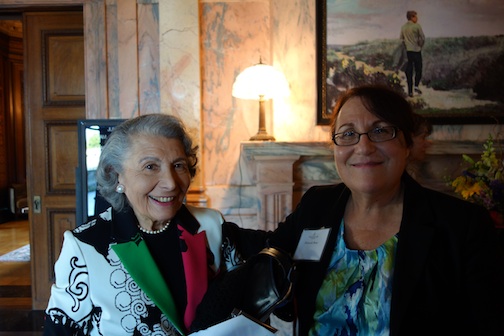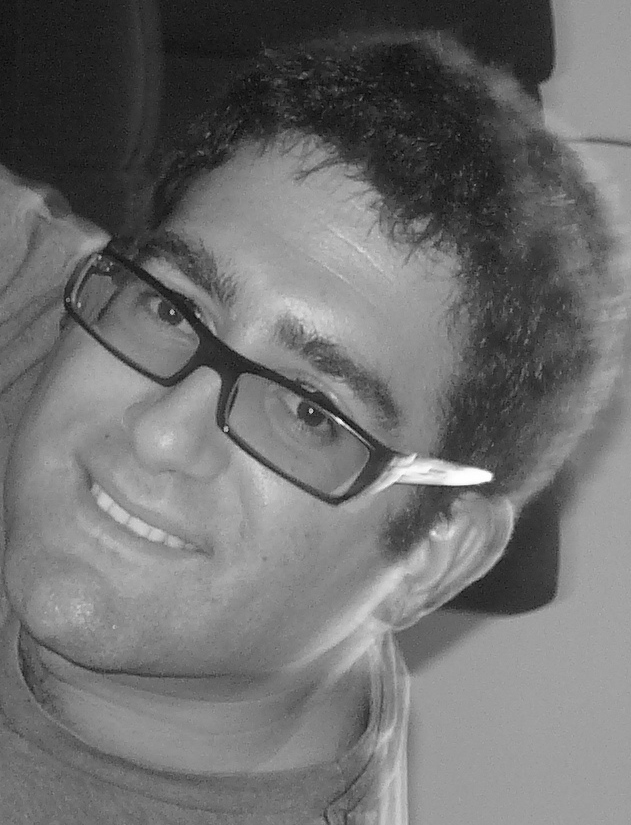July 2014 Archives
The Rose Institute for Learning and Literacy recently opened its doors at Manhattanville College. The program, a collaboration between Manhattanville College and Reading Reform Foundation of New York, hopes to improve reading comprehension, teacher education, and literacy curriculum. The Rose Institute for Learning and Literacy is currently offering a 13 credit academic program called "Science of Reading: Multisensory Instruction." The program, designed for Early Childhood, Childhood, Literacy and/or Special Educators, is a graduate certificate program. It trains teachers to use a multisensory, phonics-based approach to literacy instruction. The program was modeled after the work of Dr. Samuel T. Orton, as adapted by Romalda Spalding and combined with the intensive in-classroom teacher training that Reading Reform Foundation of New York has been offering for over 33 years. Headed by director, Dr. Pledger Fedora, the program's first cohort of six teachers began their studies this summer at Manhattanville College.
At the official opening, Dr. Judith Hochman, founder and Board member of Writing Revolution, a non-for-profit organization that works across the nation to teach writing to students in all schools, and former head of the Windward School, focused on the importance of effective teaching in order to improve education. The lack of effective educators is an issue that the Institute's program hopes to address. "My hope is that the Rose Institute is going to be a beacon for the entire country," Hochman said of the program and her expectations for teacher education.
Sandra Priest Rose, chairman of Reading Reform Foundation, spoke of her hopes for the program. The program aims to improve the reading comprehension abilities of today's youth by training teachers and arming them with the tools they need to sculpt students into better readers, writers, and critical thinkers. "We must be the bulwark against the anti-intellectual strain that runs throughout our society," said Rose of the need for critical thinkers and better readers. The educators trained at the Institute will work in the front lines of the battle to enhance intellect in their students.#
 (L-R) Sandra Priest Rose and her daughter Dr. Deborah Rose (L-R) Sandra Priest Rose and her daughter Dr. Deborah Rose

Sitting on the top of a mountain in West Dover, Vermont, this spacious contemporary home boasts spectacular views of Mount Snow to the west and Mount Monadnock to the east. Imagine sitting in a hot tub on the deck and watching the changing colors of a fabulous sunset. The 3000+sq.ft. house is surrounded by impressive gardens while the majority of the 2.34 acres consists of pine and broadleaf trees which provide substantial privacy .
The open concept living/dinning room contains two skylights and a stone fireplace with a pellet insert. The large tiled kitchen is equipped with custom cabinets, granite countertops and an island with seating for four and high-end appliances. An entertainment room, guest bedroom with a private bath and an office are also on the first floor.
The master bedroom suite with a massive walk-in closet, a jetted tub and a private deck is located on the second level as is a second guest bedroom with a private bath and deck.
There is a paved driveway, a two-car heated garage that opens to a foyer, and a tool shed behind the house.
This house is available for $575,000. Contact 802-380-6048 for additional details or to schedule a showing. Principals only.

By Dr. Joan Baum
Can it be that twenty years have gone by since Toby Perlman, mother of five, grandmother of nine, wife of Itzhak Perlman, formerly a violin student herself, at Juilliard, founded the Perlman Music Program (PMP), realizing a dream to create a "haven for gifted pre-college age string players" that would not only provide superb musical training but would also allow "kids to be kids"? Indeed it is, she smiles broadly, almost in disbelief, still, at the risky venture that blossomed into a premier music camp-school for children and young adults. Originally housed in a rented space for a little over two weeks in summer on the old Boy's Harbor grounds in East Hampton, and modestly not even including "Perlman" in its name, the program, open to the public, quickly attracted a devoted audience and outgrew its tent.
Fast forward to Shelter Island where for the last several years, PMP has been running a stunning array of workshops, chamber music sessions and instrumental and choral performances for kids 12-18 (the locals have become "groupies"), and, with the newly built handsome Clark Arts Center, also putting on recitals for advanced students and alums all year round. But it's The Littles" who claim her heart the most, "my favorite group," the talented children who made it through the highly competitive admissions process (100 fiddle applications, for example, for only a few places, but a winnowing task Itzhak attends to with "shocking" time-consuming "thoroughness and fairness." Of an afternoon, kids can be found practicing in small white cottages dotting the 28-acre shoreline Shelter Island campus, or at The Clark, or swimming, running, playing ping pong or just hanging out. A peak into rooms at Clark confirms the truth of Toby's dream to have both school and camp. Rooms are tell-tale littered with instruments, laptops, scores, electronic gadgets, socks, shirts, water bottles.
With Muttek and Boychik, her two Portuguese water dogs, looking on, Toby sits on the deck of one of the cabins and muses on what PMP has become and will continue to be. "The philosophy and the design" will remain, but quantity will be able to keep up better with quality. The Clark allows for a winter alumni series of concerts, and prestigious venues in the city and around the world now play host to performances by PMP former students. Maybe, down the line she'll introduce a "fiddle" seminar for professionals 25 and older, and maybe make a few tweaks to the curriculum. But, again, "The Littles!" They're young enough to have time to change or evolve. Despite parental pressure (and is it there)!, The Littles "don't (yet?) think they know everything."
This year there are about 38-39 Littles ("we never go over 40, that's the idea, keep it small") from different countries, many coming back year after year until they age out (this year PMP had room to take in eleven new kids). Early July was the start of the 2014 group. It's important, she says, to build a sense of community, to nurture the children and provide "a safe environment" free of the sometimes "prison-like" or "pressure cooker" atmosphere they face at home. But that doesn't mean PMP students can disregard rules and regulations. Shortly after The Littles' arrival, Toby gave them a "big lecture" on observing PMP policies and Suffolk County Health Department laws -- signing out and in when going for a walk or run, swimming only with a buddy, eschewing drugs and alcohol, etc. She feels she develops close relationships with the kids who trust her to be compassionate but not betray their confidences. They know she means it when she says she listens and looks hard at what they write on exit polls, taking into account what they like and don't like. She takes pride in eliciting their truthfulness.
Other observances are designed to encourage community. Although all students attend each other's performances, standing ovations are not permitted. And though their expertise may be classical rep, contemporary music is on the schedule. "They don't have to like it, but they all have to play and open their ears to it." They also don't have to play every week or even perform. "PMP is not a performance-oriented program," it's all about "work and learning." If there's time and they're interested, they can practice quartets, or team up with colleagues. The 12-year-old violinist will have companions in 13 and 14-year olds, and, for sure, friendships will be formed (even marriages start here!). And everyone, no matter what his or her major instrument, sings in the chorus, run by the beloved Patrick Romano. This year, he's leading PMP to sing out Rossini, Hummel, Elgar (the little heard but haunting "The Snow"), Scarlatti, et al Incredibly, most of this joy is free. See Perlmanmusicprogram.org for full schedule, or call 212-877-5045 to make reservations. Seating is limited and reservations are suggested.
New "Reverse Transfer System" is the First in New York City and State
The Presidents of the three CUNY colleges in the Bronx--Lehman College, Bronx Community College, and Hostos Community College--signed a pact that will make their students' lives much easier.
They will also made history.
All three schools--CUNY in the Bronx--agreeed to a historic "Reverse Transfer System"--the first Colleges in New York City and New York State to do so, and in the process showed once again, that all three are innovative education leaders. Reverse Transfer systems are part of a national educational trend. Colleges in Texas, Nebraska, Michigan, North Carolina and Missouri, to name a few, have been creating such systems for several years to increase students' success rates.
Simply put the new system will allow students at one of the Community Colleges to take any credits they earn at Lehman College and advance them towards their Associate Degree at their home school. In that sense credits earned at Lehman will be "transferred back" to Hostos and Bronx Community, enabling those students to increase the likelihood of graduating on time.
"This pact will not only make life easier for students, many of whom are Bronx-based, but it will help increase graduation rates," said Dr. Ricardo R. Fernández, President of Lehman College. "And when students complete their two-year Associate Degree, after tasting the success and satisfaction that brings, they are more likely to go on and earn a four-year degree and join the workforce. I would like to thank my colleagues Dr. Félix V. Matos Rodríguez, President of Hostos Community College, and Dr. Carole M. Berotte Joseph, President of Bronx Community College, for helping to make this possible."
By Dr. Matthew Mandelbaum
Here are 5 key education needs that deserve an integrated solution:
We need:
- to equalize the distribution of resources and opportunities for all students.
- to increase teacher empowerment.
- to develop students into 21st Century thinkers and doers who make meaningful, pro-social contributions to the world, and who act with gratitude, grit, open-mindedness, and self-control.
- a mechanism for implementing Common Core Standards.
- high-quality literacy instruction that goes beyond decoding.
For the past five years, I have been working on a platform to help address these issues found at ACEMyAcademics.com. ACE stands for Always Capture Excellence and is based on the belief that all learners can succeed in school. This system affords teachers and students a clear structure for communicating about assignments and discussing information, while linking academic to social-emotional learning goals. ACE's Module 1: Attacking Reading and Writing Across the Content Areas is designed to give learners from elementary through high school a meta-system of evidence-based strategies and tactics to understand narrative and expository text, media, and primary sources. It allows students to devise responses that show higher-order thinking, creativity, and insight, while encouraging meta-cognitive awareness and self-regulation. Here, reading and writing become a narrative process. Important learning tasks, such as pre-reading's motivation, prior knowledge, and text structure, and during reading's vocabulary knowledge, information architecture, and connection-making, become characters that students use to prime themselves, hunt for evidence, and write well. Students are active through the entire reading and writing process, which can increase academic learning time and achievement. Learners can have an engaged, playful attitude as they do meaningful work in English/language arts, social studies/history, and science, producing innovative, structured written and oral responses.
ACE My Academics can afford teachers the opportunity to be learning doctors who diagnose problems and prescribe interventions, to be scientists whose classrooms are laboratories for increasing learning potential, and to be social entrepreneurs, who inspire students to be passionate about issues and want to take action in their communities. The Common Core asks students to be thoughtful interpreters of knowledge and wise articulators of opinions supported by evidence. To accomplish these goals, we are in need of a common language that is introduced in the elementary grades and is continued throughout high school. As data complexity increases, students need a firm foundation for learning pattern recognition and understanding subtle informational differences. We need a methodology that links daily practice of teaching and learning of literacy to the higher-order aspirations that we have for our students and for education-at-large. ACE My Academics might offer such a path.
 Matthew G. Mandelbaum, PhD is an educator and social entrepreneur who is committed to promoting social change through education. He is the managing partner of PsySoEd Dynamics and an Adjunct Assistant Professor at Fordham University. matthew.mandelbaum@gmail.com Matthew G. Mandelbaum, PhD is an educator and social entrepreneur who is committed to promoting social change through education. He is the managing partner of PsySoEd Dynamics and an Adjunct Assistant Professor at Fordham University. matthew.mandelbaum@gmail.com
acemyacademics.com @acemyacademics linkedin.com/in/matthewmandelbaum psysoed.com
There are still some spaces available in Usdan Center's special three-week season, which runs July 28 to August 15. Introduced last year, the program was so successful that it returns. Usdan, America pre-eminent summer arts day camp, has just begun its 47th season at its 200-acre woodland campus in the Huntington area of Long Island.
Major subjects still available for the three-week programs include Discovery (for Grades K to 1), Art Adventure (Grades 2 to 4), Studio Art (Grades 5 to 12), Chess (Grades 3 to 12), and the new Musical Theater major for Grades 7 to 12 (note: the Theater Dance major, also for grades 7 to 12, is full). Most students also have a Minor subject, and those available include Recreation (Grades 2 to 12), Chess (Grades 3 to 12) and Junior Chorus (Grades 2 to 6). Note: grades indicated are for the 2013-14 school year.
For more information, please call (631) 643-7900 as soon as possible, or visit www.usdan.com, click on "Students and Parents," and then "How to Apply."
Usdan Center for the Creative and Performing Arts (www.usdan.com), counts among its alumni actors Natalie Portman, Olivia Thirlby and Jackie Hoffman, and singers Jane Monheit and Mariah Carey. It has introduced the arts to more than 60,000 Tri-State Area children since its founding in 1968. The Center is open to all young people from age 6 to 18. No audition is needed for most programs - rather, admission is based on an expression of interest in the arts. Each summer, 1,600 students are transported to the Center in air-conditioned buses each day. One-third of Usdan's students attend on scholarship. Although the mission of the Center is for every child to establish a relationship with the arts, the unique stimulation of the Center has caused many to go on to arts careers. Alumni include members of Broadway shows and major music, theater, and dance ensembles such as the Boston Pops and the New York City Ballet. In addition to its regular programs, Usdan offers special opportunities for advanced high school- age performing artists in music and dance. Usdan Center is an agency of the UJA-Federation of New York. For more information, write to info@usdan.com. Call (631) 643-7900, or visit www.usdan.com .
|
|
|
 (L-R) Sandra Priest Rose and her daughter Dr. Deborah Rose
(L-R) Sandra Priest Rose and her daughter Dr. Deborah Rose


